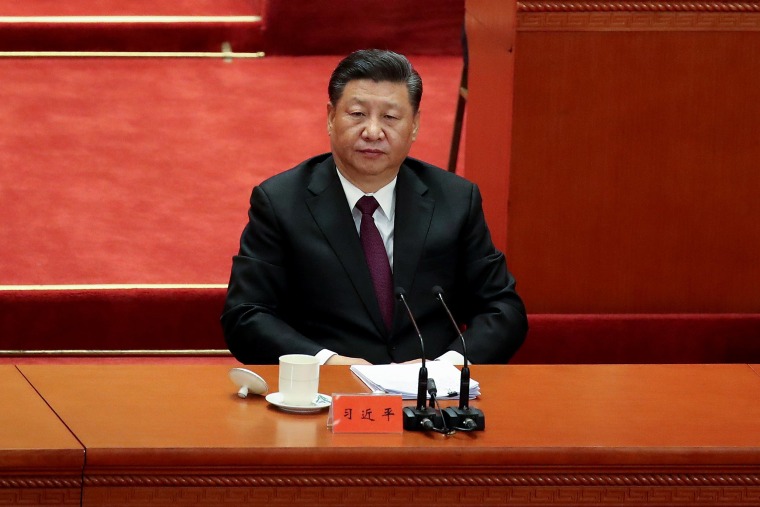Chinese President Xi Jinping addressed his nation Tuesday morning in Beijing to commemorate the 40th anniversary of China’s “reform and opening up ” — and he struck a relatively defiant tone in response to international calls for changes to his country’s economy.
“No one is in a position to dictate to the Chinese people what should or should not be done,” Xi said in Mandarin Chinese during the speech, according to an officialtranslation broadcast through state media.
His remarks focused on how China’s Communist Party guided the nation to its economic success, and emphasized the country’s right to pursue its own path going forward. In an address that lasted nearly 1 1/2 hours, Xi did not mention trade tensions with the U.S. and made only passing reference to market-oriented reform goals that previous speeches have discussed in detail.
He called for China to “stay the course” on its current path.
Dec. 18 commemorates how Chinese leader Deng Xiaoping’s restructuring of the economy in 1978, paving the way for individual ownership in some industries and allowing foreign companies limited access. Many credit the policy change for helping lift hundreds of millions out of poverty and turning China into an economic powerhouse that now ranks second only to the United States.
“The past 40 years eloquently prove that China’s development provides a successful experience and offers a bright prospect for other developing countries as they strive for marketization,” said Xi.
After Xi became president in 2013, Beijing’s initial policy was more market-oriented. But in recent years, the direction has reversed and reform is not moving forward in eight of 10 areas tracked by The China Dashboard, a joint project between the Asia Society Policy Institute and the Rhodium Group.
Critics say China did not achieve its economic success without stealing intellectual property and undermining global market forces with state support. They add that Beijing has benefited from joining the World Trade Organization in 2001 but has not followed commitments to reduce government control.
Meanwhile, the U.S. under President Donald Trump is stepping up pressure on China with tariffs on the bulk of the country’s exports to America. Beijing retaliated with duties of its own, and the escalating trade tensions between the world’s two largest economies have roiled global markets. Trump and Xi reached a temporary ceasefire earlier this month with the U.S., agreeing not to increase tariffs if the two countries can reach some resolution on issues such as forced technology transfer within 90 days.
Some hope the pressure from the West will push Xi to speed up restructuring of the economy, details on which were lacking in Tuesday’s speech. It’s possible that Xi wants to hold back from revealing too much ahead of further negotiations with the United States. Other announcements could also come from the upcoming Central Economic Work Conference — a key meeting of top party leaders and policymakers widely expected to begin this week.
But Xi’s nationalistic tone didn’t appear to leave him much wiggle room to balance two goals: strike a significant trade deal on the one hand, while saving face amid U.S. pressure on the other. In this way he is likely setting China on a course that runs counter to an increasingly adversarial U.S.
